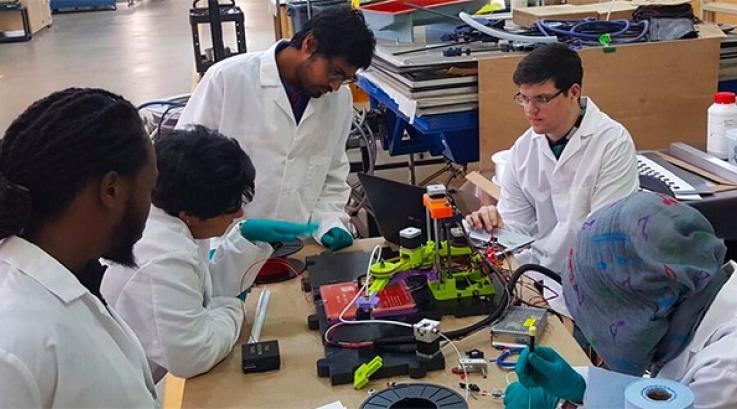
The multidisciplinary High-Performance Materials Institute (HPMI) performs research for emerging advanced composites, nanomaterials, multifunctional materials and devices, and advanced manufacturing. Currently, HPMI is involved in four primary technology areas: High-Performance Composite and Nanomaterials, Structural Health Monitoring, Multifunctional Nanomaterials Advanced Manufacturing and Process Modeling. Over the last several years, HPMI has proven a number of technology concepts that have the potential to narrow the gap between research and practical applications of nanotube-based materials.

The Florida A&M University – Florida State University College of Engineering maintains a Machine shop for support of research programs and of undergraduate and graduate education. The Machine Shop assists students, faculty, and staff with their cutting edge research and education by providing the necessary knowledge, equipment, and experience in machining and fabrication. In addition to offering the latest in CAD/CAM programs, the COE Machine Shop is equipped with a Haas CNC lathe, Haas CNC mills, and an Omax water jet machining center, enabling the shop to offer a high level of part accuracy for a variety of manufacturing processes.
For more information or to request services, visit the machine shop web page.


The mission of the National High Magnetic Field Laboratory (NHMFL), as set forth by NSF, is: "To provide the highest magnetic fields and necessary services for scientific research conducted by users from a wide range of disciplines, including physics, chemistry, materials science, engineering, biology and geology." In line with this, it generates the world's highest DC magnetic fields. ME researchers in the Maglab perform research and development projects involving very low temperature science and technology, relevant to the cooling of superconducting magnets.
The CREST CoMand focuses on the additive manufacturing of conventional and novel device structures. Specifically, the effort towards ab-initio fundamental understanding of material-property relationships that govern the working forces behind high-rate applications for bio, energy and production of light-weight structures.

